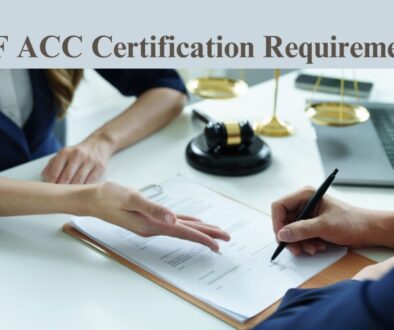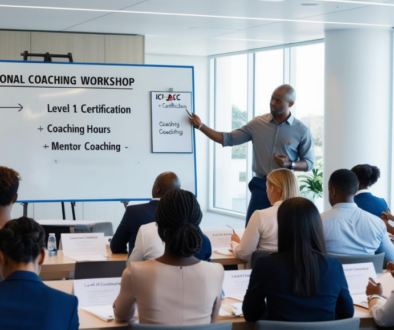Why Having an ICF Mentor is Crucial for ACC, PCC, or MCC, Credential
Introduction:
As coaches set out on the journey to secure ICF credentials such as ACC, PCC, or MCC, the pivotal role of an ICF mentor in their coaching development cannot be overstated. An ICF mentor plays a defining role in providing valuable support and guidance for the growth and progress of coaches striving for accreditation, especially those dedicated to achieving the ACC, PCC, or MCC,Credential .
Mentor coaching for an ICF credential involves coaching and feedback in a collaborative, appreciative, and dialogue-based process. It is based on an observed or recorded coaching session and aims to enhance the coach’s ability to coach in accordance with the ICF Core Competencies.
Mentoring offers professional support to achieve and demonstrate the coaching competencies required for the desired credential level.
 Benefits of Having an ICF Mentor :
Benefits of Having an ICF Mentor :
Benefits of Engaging an ICF Mentor during ACC, PCC, or MCC,Credential
- Enhancing Coaching Competencies: An ICF mentor provides personalized guidance to help you gain clarity and sharpen your coaching skills, ensuring that you are well-equipped to support your clients effectively.
- Personal Development: Through mentorship, you can address your specific areas of personal growth, enabling you to overcome challenges and refine your coaching approach to achieve greater impact and professional excellence.
- Confidence Building and Ethical Navigation: Working with a mentor empowers you to build confidence in your coaching abilities while providing valuable insights into navigating complex ethical dilemmas, thus strengthening your professional conduct.
- Meeting ICF Credentialing Requirements: By engaging in mentorship, you fulfill the necessary ICF mentoring requirements, accelerating your progress towards achieving the ACC, PCC, or MCC Credential credential and solidifying your standing as a recognized professional in the coaching industry.
Finding the Right ICF Mentor:
The right ICF mentor can be crucial for your coaching development. When searching for a mentor, it’s essential to look for someone with the PCC, or MCC Credential , as these credentials demonstrate a certain level of expertise and adherence to the ICF’s professional standards. Additionally, a good ICF mentor should possess strong communication skills, empathy, and a willingness to provide constructive feedback.
To find ICF-approved mentors, consider contacting coaching organizations or associations with a network of certified mentors. Many of these organizations offer coach mentoring programs and can help connect you with a suitable mentor for your needs. Finding the right ICF mentor is about finding someone who has the right qualifications and shares your values and goals as a coach. Take the time to research and connect with potential mentors to ensure that you find the best fit for your coaching journey.
How an ICF mentor accelerates your coaching success
The International Coaching Federation offers various levels of credentials for coaches, including the ACC, PCC, or MCC Credential. However, achieving an ICF ACC, PCC, or MCC Credential requires dedication and mentorship. An ICF mentor plays a crucial role in accelerating your coaching success, especially in the journey towards ACC, PCC, or MCC Credential. Through coach mentoring, aspiring coaches can gain valuable insights and guidance from experienced professionals. An ICF mentor provides support, feedback, and direction, helping mentees navigate the complexities of coaching, understand the ICF core competencies, and develop their coaching skills to meet the rigorous standards set by the ICF.
The mentorship of an ICF ACC, PCC, or MCC Credential not only enhances a coach’s competence but also instills confidence and credibility. The personalized support and knowledge transfer from an ICF mentor can significantly impact a coach’s professional growth and contribute to their success in obtaining ICF ACC, PCC, or MCC Credential. The guidance of an ICF mentor is instrumental in shaping the career path of coaches and expediting their journey towards ICF certification. The mentor-mentee relationship fosters continuous learning, skill enhancement, and a deeper understanding of the ICF core competencies, ultimately propelling coaches towards greater success in their coaching endeavors.





